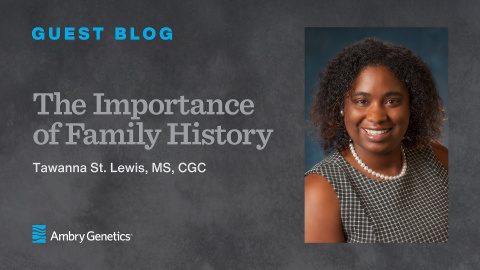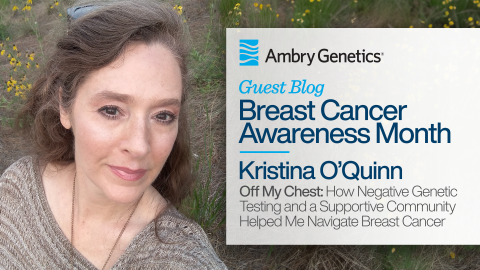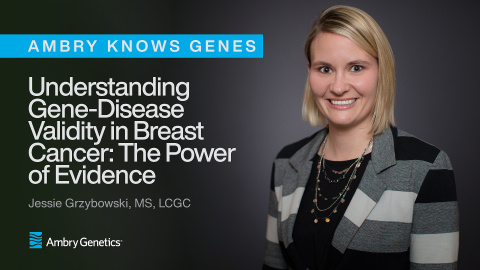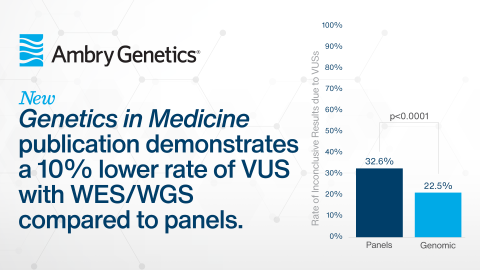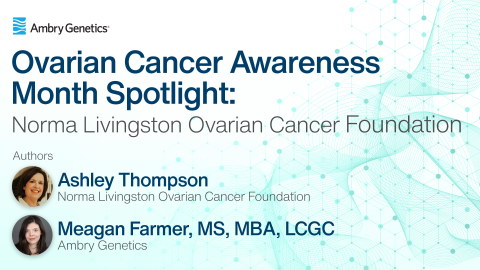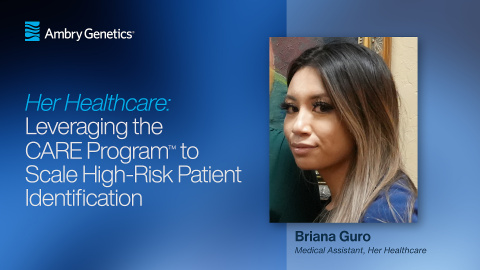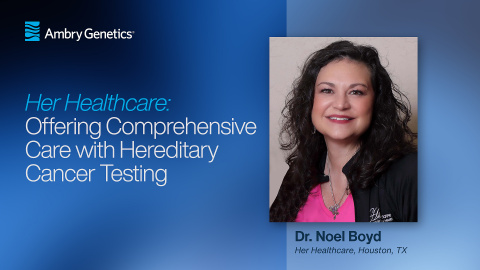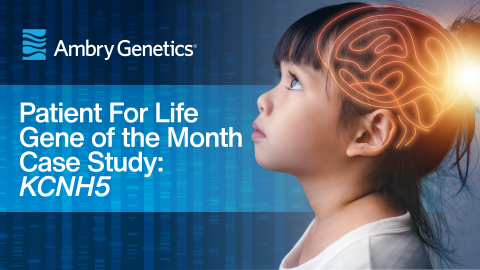- By Tawanna St. Lewis, MS, CGC
- Posted November 20, 2023
Guest Blog: The Importance of Family Health History
My name is Tawanna St. Lewis, and I have been a genetic counselor for going on seven years now. My love for the profession continues to grow. I remain passionate about my role because I enjoy speaking with and helping patients, and I genuinely appreciate it when patients feel comfortable enough to share their health history and family history.…
- By Kristina O'Quinn
- Posted October 25, 2023
Off My Chest: How Negative Genetic Testing and a Supportive Community Helped Me Navigate Breast Cancer
In the fall of 2021, my eighteen-year-old child was making an appointment for an annual check-up, then handed me the phone and said, “Mom, don’t you need a check-up? Didn’t you miss your appointment last year because of COVID?” I had, in fact, missed my annual check-up and mammogram. A few days later, after the check-up and mammogram, I…
- By Meagan Farmer
- Posted October 18, 2023
Breast Cancer Awareness Month: CHEK2 with Petra Kleiblova and Zdenek Kleibl
Amby Genetics is proud to have worked with a large international team on clarifying the significance of CHEK2 variants. We connected with team leaders Dr. Petra Kleiblova and Dr. Zdenek Kleibl ahead of Breast Cancer Awareness Month. They provided us with the following commentary on the importance of the recent publication, “ENIGMA CHEK2gether…
- By Jessica Grzybowski, MS, CGC
- Posted October 17, 2023
Understanding Gene-Disease Validity in Breast Cancer: The Power of Evidence
When it comes to understanding the genetic basis of diseases, evidence plays a crucial role. Gene-disease validity measures the strength of evidence associating pathogenic variants or changes in a gene to a genetic disease or syndrome. In the context of breast cancer, which affects approximately 1 in every 8 women, grasping gene-disease validity…
- By Meagan Farmer
- Posted September 27, 2023
Ambry Spotlight: BRCAResponder Amy Byer Shainman
Amy Byer Shainman, also known as BRCAResponder, is a patient advocate, author, and producer who provides support and education related to having a pathogenic variant in BRCA1/2 or other cancer predisposition genes. We connected with her ahead of National Previvor Day and Hereditary Breast and Ovarian Cancer Week. Amy’s sister was diagnosed…
- By Meghan Towne, MS, CGC, LCGC
- Posted September 20, 2023
Genetics in Medicine publication demonstrates a 10% lower rate of VUS with WES/WGS compared to panels
Are uncertain results (variants of uncertain significance, or VUS) more likely in multi-gene panels (MGP) or whole exome- and genome-based (WES/WGS) tests? Ambry recently participated in a study led by the Medical Genomic Initiative (MGI) comparing the VUS rates for MGP and WES/WGS. The study, conducted across 19 clinical laboratories in North…
- By Ashley Thompson
- Posted September 14, 2023
Ovarian Cancer Awareness Month Spotlight: Norma Livingston Ovarian Cancer Foundation
Norma was a healthy, active 65-year-old woman who was rarely sick and had always been proactive about her health. She went to her internist complaining of weight gain, abdominal discomfort, and a chronic cough. When the diagnosis was finally made, Norma had stage 4 ovarian cancer. She endured nine hours of surgery, countless rounds of chemotherapy,…
- By Meagan Farmer
- Posted August 9, 2023
Her Healthcare: Leveraging the CARE Program to Scale High-Risk Patient Identification
We recently met with Texas OB/GYN, Dr. Noel Boyd. We learned about her passion for caring for the whole patient and helping to identify those at increased risk for cancer so that they can make proactive choices to address their risk. Dr. Boyd’s practice implemented The CARE ProgramTM, which stands for “Comprehensive Assessment of Risk and…
- By Meagan Farmer
- Posted August 2, 2023
Her Healthcare: Offering Comprehensive Care with Hereditary Cancer Testing
Dr. Noel Boyd is an OB/GYN who has been in private practice in a suburb of Houston, TX, for 21 years. The patients seen in her practice, Her Healthcare, range in age from 9 to 99, and she cares for them through everything from routine exams to high-risk pregnancy, from contraception counseling to cancer screening. “I really love taking care…
- By Catherine Schultz, MS, CGC
- Posted July 18, 2023
Gene of the Month: KCNH5
In 2013, Emma’s parents1 hoped that a new genetic test, whole exome sequencing (WES), would reveal why their 2-year-old daughter developed epileptic encephalopathy. However, when Emma’s WES results were negative, her parents were disappointed. How could they examine the whole exome and not find an answer? For patients with rare genetic disorders…
